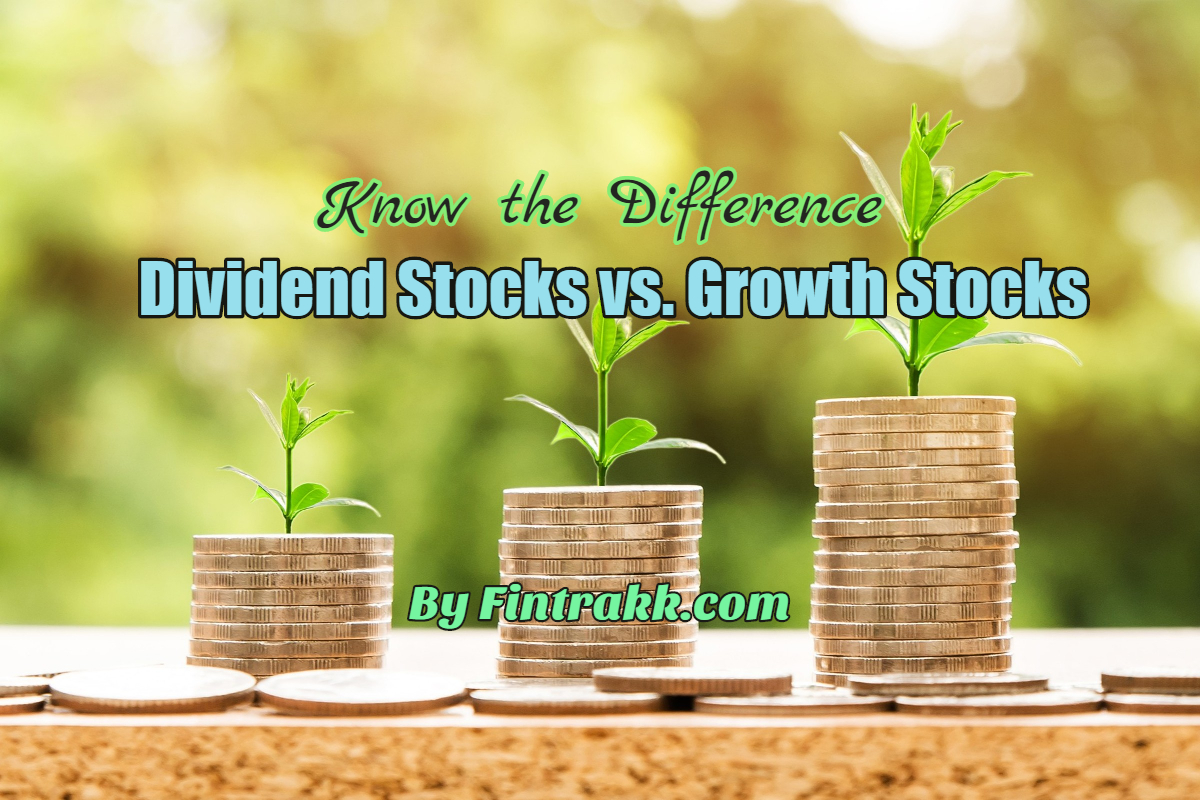Are you a newbie in the stock market? If yes, one of the first few things you must learn is different types of stocks. Here’s a comprehensive post on Dividend Stocks vs Growth Stocks, you simply have to know these differences.
Let’s discuss and gather more information on these interesting variants of stocks.
What are Dividend Stocks? Meaning
Dividend Stocks are stocks that pay dividends. In other words, dividend is the amount paid by a company to its shareholders. While major portion of the net profit is kept by the company for ongoing and future business activities, the remainder can be allocated to the shareholders as dividend. It’s quite possible that sometimes companies don’t make a profit, but still continue to pay dividend. All this, to maintain their track record of making regular dividends.
The percentage of total profits a company pays in dividends to shareholders is called the Payout Ratio. Dividends are often paid in cash, but they can also be issued in the form of additional shares of stock.
Pros of Investing in Dividend Stocks
These are few advantages of investing in dividend stocks:
- Passive income: Dividends offer a steady flow of passive income. You may either choose to spend it or reinvest it, as you like. This attribute makes dividend stocks particularly attractive to retirees looking to score some supplemental income.
- Stable company: Companies that pay dividends tend to be more mature and stable than companies that don’t. Contrary to startups, when an established company has attained a sustainable level of success, its board of directors vote to pay dividends.
- Two ways to profit: With dividend stocks, your return on investment (ROI) increases when share prices rise and when the company pays dividends.
- Buy more shares: One can always reinvest the dividend received by buying more shares without taking cash out of your pocket.
You may have a look at Top Dividend Paying Stocks in India
Cons of Investing in Dividend Stocks
The common disadvantages of investing in dividend stocks are:
- Share prices can drop: After the declaration of dividend, the price of a stock often increases. Since a stock dividend increases the number of shares outstanding whereas company value is stable, it results in diluting the book value per common share. Thereby reducing the stock price accordingly.
- Dividends are optional: Companies are not legally required to pay dividends or increase the payments they make. Unlike bonds, where a failure to pay interest can put a company into default, a company can cut or eliminate a dividend whenever it wants.
What are Growth Stocks? Meaning
Growth stocks are characterized in “high-growth” companies which are expected to grow their revenues and profits at a pace faster than the rest of the market. When a company earns profits, it reinvests the excess cash back into the business to accelerate its growth. And, Growth stocks typically in their early or mid-growth stages, grow at a rapid pace, and are among the out-performers during a market rally.
Historically, they pay less in dividends to shareholders. Growth stocks typically have above-average P/E ratios. The rationale is that because the company is growing so quickly, their potential future profits justify their high valuation.
Also, have a look at Graham Calculator for Stock Valuation
Pros of Investing in Growth Stocks
- Higher returns: In general, growth stocks offer the largest price increases. They outperform the market causing large appreciation in stock price leading to higher returns on the investment made. Typically, one needs to invest at right time in the right company for long term to gain maximum returns.
- Compounding your wealth: Investing in growth stocks is a long term investment leading to compounding over years which is one of the fastest ways to grow your money. Buying growth stocks correctly and selling them after they show large increase in the stock price just before they are about to come down. Doesn’t that seem a wise strategy?
Cons of Investing in Growth Stocks
- Lesser Dividends: Growth stocks pay lesser dividends as they re-invest most of the profits into the company for further growth prospectus. This leaves less room for dividends.
- Higher Risk: Investment in growth stocks is generally done for a long duration. Hence, it becomes very important for one to choose the right company which generally takes a lot of research. A wrong decision can lead to substantial loss for the long run.
You may also like: Stock Market Basics for Beginners
Dividend Stocks vs. Growth Stocks: A Final Take
Now, that we have briefed about both the dividend stocks and the growth stocks. The question remains, which one is better?
Well, dividend stocks are better for the investors who have low-risk appetite and are looking for passive income on short intervals. On the contrary, growth stocks are for high-risk taking investors, who are aiming at long term investment for higher returns. Which one do you prefer?
After going through differences between Dividend Stocks vs Growth Stocks, you can figure this out easily based on your priorities , interests and financial goals.

